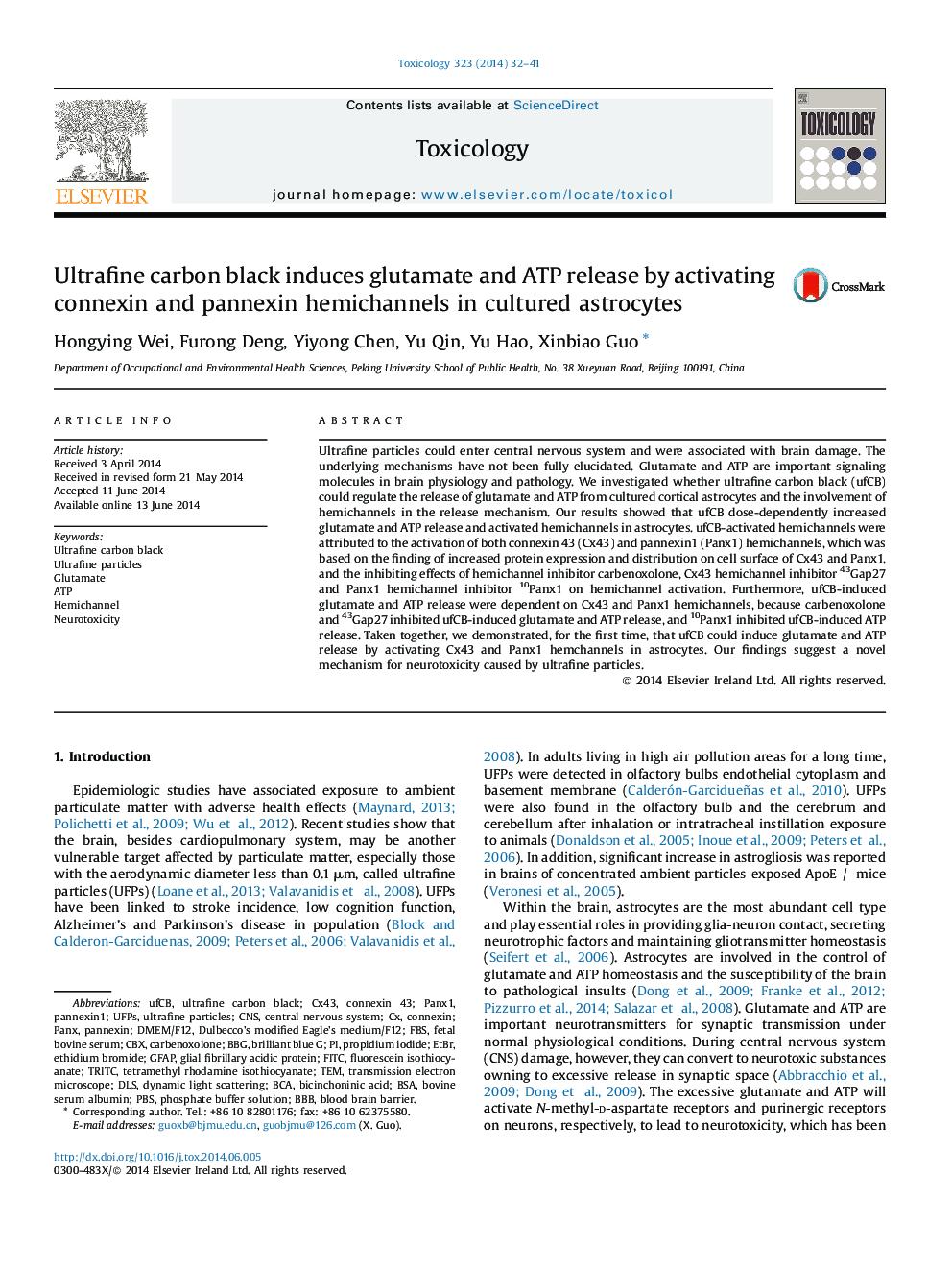| Article ID | Journal | Published Year | Pages | File Type |
|---|---|---|---|---|
| 5859202 | Toxicology | 2014 | 10 Pages |
Ultrafine particles could enter central nervous system and were associated with brain damage. The underlying mechanisms have not been fully elucidated. Glutamate and ATP are important signaling molecules in brain physiology and pathology. We investigated whether ultrafine carbon black (ufCB) could regulate the release of glutamate and ATP from cultured cortical astrocytes and the involvement of hemichannels in the release mechanism. Our results showed that ufCB dose-dependently increased glutamate and ATP release and activated hemichannels in astrocytes. ufCB-activated hemichannels were attributed to the activation of both connexin 43 (Cx43) and pannexin1 (Panx1) hemichannels, which was based on the finding of increased protein expression and distribution on cell surface of Cx43 and Panx1, and the inhibiting effects of hemichannel inhibitor carbenoxolone, Cx43 hemichannel inhibitor 43Gap27 and Panx1 hemichannel inhibitor 10Panx1 on hemichannel activation. Furthermore, ufCB-induced glutamate and ATP release were dependent on Cx43 and Panx1 hemichannels, because carbenoxolone and 43Gap27 inhibited ufCB-induced glutamate and ATP release, and 10Panx1 inhibited ufCB-induced ATP release. Taken together, we demonstrated, for the first time, that ufCB could induce glutamate and ATP release by activating Cx43 and Panx1 hemchannels in astrocytes. Our findings suggest a novel mechanism for neurotoxicity caused by ultrafine particles.
Graphical abstractModel of ufCB-induced glutamate and ATP release through activating hemichannels in astrocyte and the implicaiton for neurotoxicity. After ufCB treatment, Cx43 and Panx1 hemichannels in astrocyte were activated. Increased hemichannel activity promoted glutamate and ATP release. The excessive glutamate and ATP in synaptic space might activate neuronal receptors and result in neurotoxicity.Download full-size image
